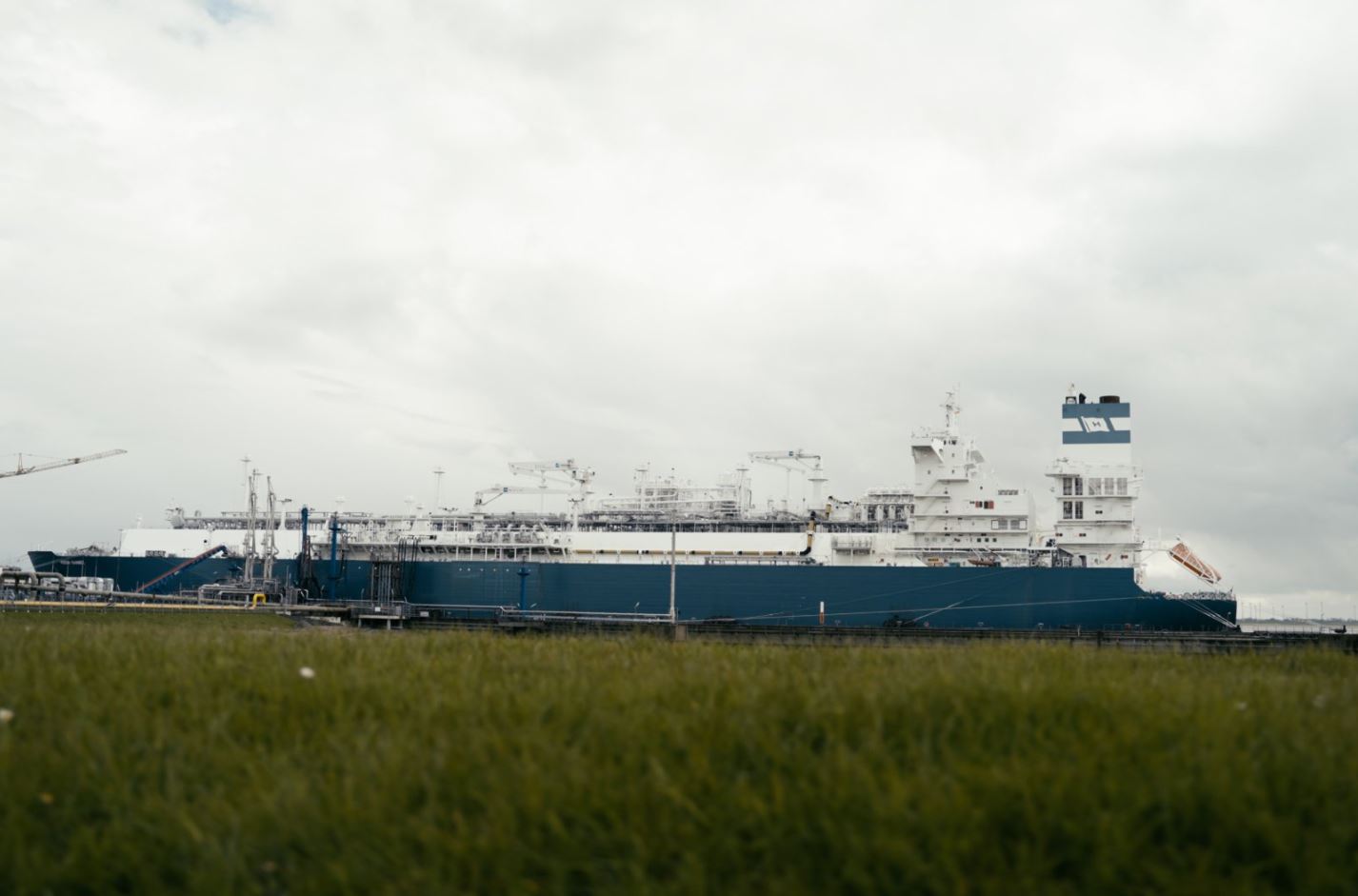 The floating storage and regasification unit (FSRU) Höegh Gannet will leave Brunsbüttel on September 18 for the Fayard shipyard in Denmark, where it is expected to remain until mid-November.
The floating storage and regasification unit (FSRU) Höegh Gannet will leave Brunsbüttel on September 18 for the Fayard shipyard in Denmark, where it is expected to remain until mid-November.
Before departure, the 297-meter vessel will be moved to the middle berth in the Elbe port for preparatory work.
The operator, Deutsche Energy Terminal GmbH (DET), said that precautions were being taken with all parties involved to limit operational noise during this short phase.
Dirk P. Lindgens, Head of Communications at DET, stated: “In coordination with the shipping company Höegh Evi, additional technical equipment is being installed on board the Höegh Gannet at the Fayard shipyard to ensure even better emission protection. For example, catalytic converters are being retrofitted to further reduce air pollutant emissions and comply with the requirements of the 44th Federal Immission Control Ordinance. The catalytic converters not only serve to keep the air clean but also contribute to noise reduction. In addition, we are rotating the exhaust pipes on the funnel so that they are no longer directed towards residential areas. Following the optimization of the FSRU's operating mode and the installation of silencers, this is a further contribution to minimizing noise in the direction of residential areas.”
DET also confirmed that while the Höegh Gannet is away, inspections and maintenance at the pier will include checking fenders, ropes, and chains. On the gas receiving side, the high-pressure hose will be replaced and filters on the hot water pipe renewed.
According to Lindgens, “The Höegh Gannet will resume operations in Brunsbüttel in mid-November, in good time before winter. In 2025, the regasification ship has so far been able to feed around 19 terawatt hours of energy in the form of natural gas into the German gas grid. This corresponds to the annual natural gas consumption for heating almost 1.4 million four-person households in 100-square-meter apartments in multi-family buildings.”
Deutsche Energy Terminal GmbH (DET) is a German limited liability company established to operate and manage floating storage and regasification units at German LNG import sites. The company is responsible for the infrastructure supporting natural gas imports into the national transmission grid.
Höegh Evi is a shipping company that manages vessels within the Höegh LNG group, a global operator of floating storage and regasification units and LNG carriers. Höegh Evi is responsible for the technical and operational management of specific ships, including the Höegh Gannet.
Fayard A/S is a privately owned Danish shipyard located in Munkebo, Denmark. The company provides repair, maintenance, conversion, and retrofitting services for large vessels, including LNG carriers, container ships, and offshore units.



